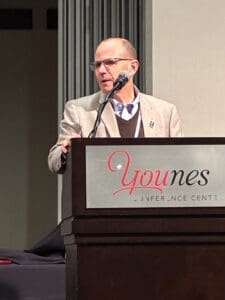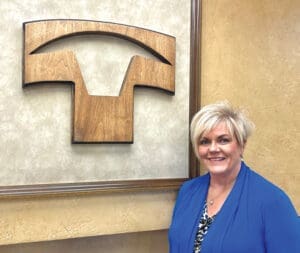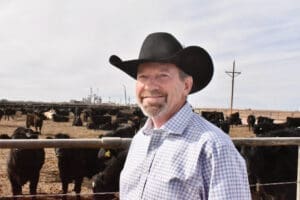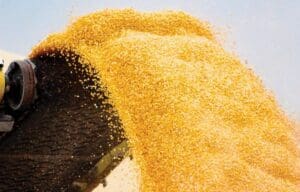By Will Verboven Contributing Editor
It seems like the Country of Origin Labeling (COOL) issue is a gift that keeps on giving for ag opinion writers. I have written on the topic for CALF News at least twice before, as the issue goes back many decades. I shudder to think of the millions spent by cattle producer groups and lost by marketers and processors on both sides of the border as well as the dollars gone to mindless government red tape, busybody bureaucrats and lawyers. The unwelcome question is, have cattle producers and consumers really benefitted from this endless exercise? Has North American beef consumption during all this time gone up 10 percent, 5 percent or even 1 percent? What if all those millions had been spent promoting beef on both sides of the border instead? Maybe the cycle can stop this time, as the latest COOL may be easier to live with. However, I fear some of the more zealous lobby groups who have pursued this concept like a crusade will not leave the issue alone, being they have self-preservation reasons for continuing the fight.
The latest COOL regulations go into effect in 2026 and use a voluntary approach called vCOOL instead of the mandatory one called mCOOL. The World Trade Organization (WTO) declared the latter illegal – vCOOL is designed to dodge that ruling. The onus will be on packers/processors to prove that the cattle or beef they use are 100 percent of US origin to use the “Product of or Made in USA” label. Meat marketers will have to decide if such labelling is worth the effort. I suspect with multiple sources of domestic and imported meat products, the big global meat marketers will find ways to manipulate label use to their advantage. That brings to mind whether Canada should use its WTO authorization to impose retaliatory tariffs on US imports to deal with the new vCOOL regulations. The odds are Canada won’t take that option, as our trade officials would be loathe to challenge the US, especially with CUSMA (called USMCA in the US and T-MEC in Mexico) free trade renegotiations coming up in 2026. Besides, as a stalling tactic, the US may claim that vCOOL is different enough from mCOOL, and Canada will have to relitigate the issue before a new WTO tribunal.
The North American beef industry might have hoped that the WTO COOL ruling had finally put the issue to rest. However, the issue will never be settled for some US protectionist groups until all meat and livestock imports are banned. The issue seems to be driven by some underlying factors – the main one being that if all beef and cattle imports were banned, the price of live cattle for US producers would skyrocket. That’s a great supply and demand theory, but it doesn’t quite work that way in the North American cattle and beef business. There isn’t much point in regurgitating the interconnected nature of that business because it doesn’t matter to protectionist groups. The reality is that the strategists promoting COOL work for lobby organizations that initiate and pursue causes and regulations as a business enterprise.
The latest COOL regulations go into effect in 2026 and use a voluntary approach called vCOOL instead of the mandatory one called mCOOL.
Consider the R-CALF USA lobby group, which has been the driving force behind COOL for the past thirty years. COOL is their main issue, and their fearmongering has been instrumental in accumulating donations to keep the organization going. Fearmongering for donations is nothing new in the lobbying business; animal rights and green groups always use that approach. It gives such groups more money to hire more professional staff – whose full-time job is, you guessed it, to lobby and fearmonger their causes for more donations. In a perverse way, the endless COOL odyssey has been a boon to R-CALF as it has allowed it to remain in business. I see that R-CALF has diversified; it now includes saving the American sheep industry as one of its new donation attraction enterprises.
One has to credit the crafty nature of R-CALF as it has allied itself with other seemingly dissimilar lobbying groups like property and consumer rights. That’s helped them successfully pursue their causes in high political circles in Washington, DC. Such groups tend to be larger, better connected and cunning strategists. I suspect those lobby groups help support R-CALF as they deem them to be useful idiots for their own dubious causes. Again, there is nothing new in that alliance business – animal rights, vegetarian, green left groups and environmental law agencies are all known to be interconnected – heck, such folks even have conventions where they can make deals, strategize, scheme and find ways to share causes. But I digress.
Perhaps the time has come for Canadian producer organizations to stop fighting the new vCOOL; it just isn’t worth the cost and effort. Maybe the voluntary nature of vCOOL is the best deal to resolve the dispute – after all, every country has a right to promote its own homegrown products with its own label. Let private enterprise decide if using the Made in USA label is in their commercial interest. That would reflect a similar voluntary arrangement for using the “Made in Canada” label up here.
Will Verboven is an ag opinion writer and policy advisor based in Calgary, Alberta.





